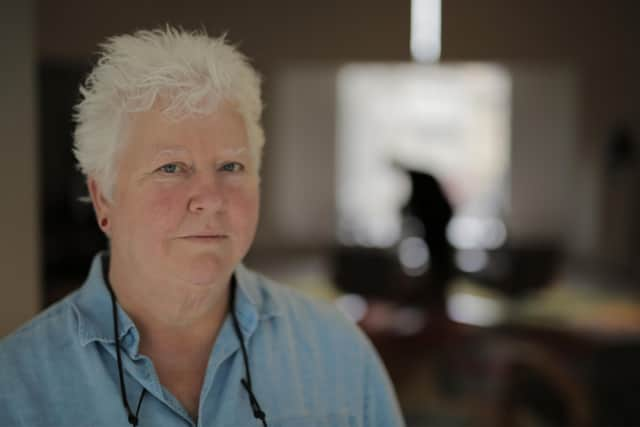Edinburgh International Book Festival reviews: Val McDermid: A Life in Writing | Malorie Blackman: Writing My Story | Ian McEwan: The Measure of a Life
WHAT makes a person into a writer? As part of its 40-year anniversary, the Edinburgh Book Festival has programmed a number of events in which well-loved writers reflect on what formed them, one of whom was Val McDermid, interviewed by Peggy Hughes before a sell-out crowd on Monday afternoon.
McDermid has been a regular at the festival for three decades and has progressed, in that time, from an emerging writer of lesbian detective fiction to the Queen of Crime, with nearly 20m books sold worldwide and multiple TV adaptations of her work. Her story is well-known: the working-class upbringing in Kirkcaldy, the avid reader whose appetite was fuelled by libraries, the scholarship to Oxford.
Advertisement
Hide AdAdvertisement
Hide AdAt St Hilda’s College, the first student ever admitted from a Scottish state school, she was not cowed by the privilege around her: “I thought, these people have the keys to the kingdom, and I’m not leaving until they hand them over!” She used the same determination to survive in the “misogynist, sexist, deeply homophobic” world of tabloid journalism in the 1980s, a career which would provide her with a “huge database” of characters and experiences to draw on for her novels.
It was the work of American writers like Sara Paretsky which inspired her to become a crime writer (after a brief spell as a playwright). Here was a gutsy woman detective operating in a big, tough city, when British whodunnits seem to happen mainly in St Mary Mead (“East Wemyss wasn’t like that!”). McDermid spoke of the importance of writing honesty, but not gratuitously, about violence, and of building the back stories of her victims, shunning the idea of “cardboard cut-outs” who are invariably young, beautiful and female.
There were points of crossover between McDermid and Malorie Blackman, in conversation with Nadine Aisha Jassat on Tuesday morning. Blackman, the author of the acclaimed Knots & Crosses series which exposes everyday racism by reversing the roles of black and white people, was a library kid, too. She said that without libraries she would never have become a writer. Books were “a lifesaver”: “Even in the darkest times, I could go anywhere, be anyone.”
Writing her autobiography, Just Sayin’, she said she realised the importance of her own tenacity. “When a teacher wouldn’t give me a reference to go to university because she said black kids didn’t go to university and I should become a secretary instead, I kept at it and got in the following year off my own back. I got rejections but I kept trying – I’m a stubborn cow!”
Blackman spoke so much down-to-earth good sense the audience was ready to vote her into Downing Street. Tax the energy companies, indict Trump, make the Transport Minister take the bus: we were ready to design her campaign posters right there.


Ian McEwan has been reflecting on his life, too, during the writing (mainly in lockdown) of his latest novel, Lessons. While his protagonist Roland Baines is not him, Baines’ life matches the span of McEwan’s, taking in the same historical events. Growing up with a father in the Forces, as McEwan did, Baines is perhaps “the man I might have been if I hadn’t been a writer”.
One could read Roland Baines as a passive character who drifts through “an unchosen life” as a pianist in a hotel lobby, but there’s more to him than that. He smuggles contraband books into East Berlin, raises a child alone but does it well, and finds himself, in his eighth decade, a happy grandfather, looking back on his life with some contentment.
Advertisement
Hide AdAdvertisement
Hide AdMcEwan spoke about how he “threaded” stories from his own life into Baines’ story, including his childhood experience being in Libya during the Suez Crisis, and meeting for the first time in middle age the half-brother his mother had given up for adoption during the war. At 75, looking back on 53 years of writing, he projected an equanimity which matched that of Roland Baines.